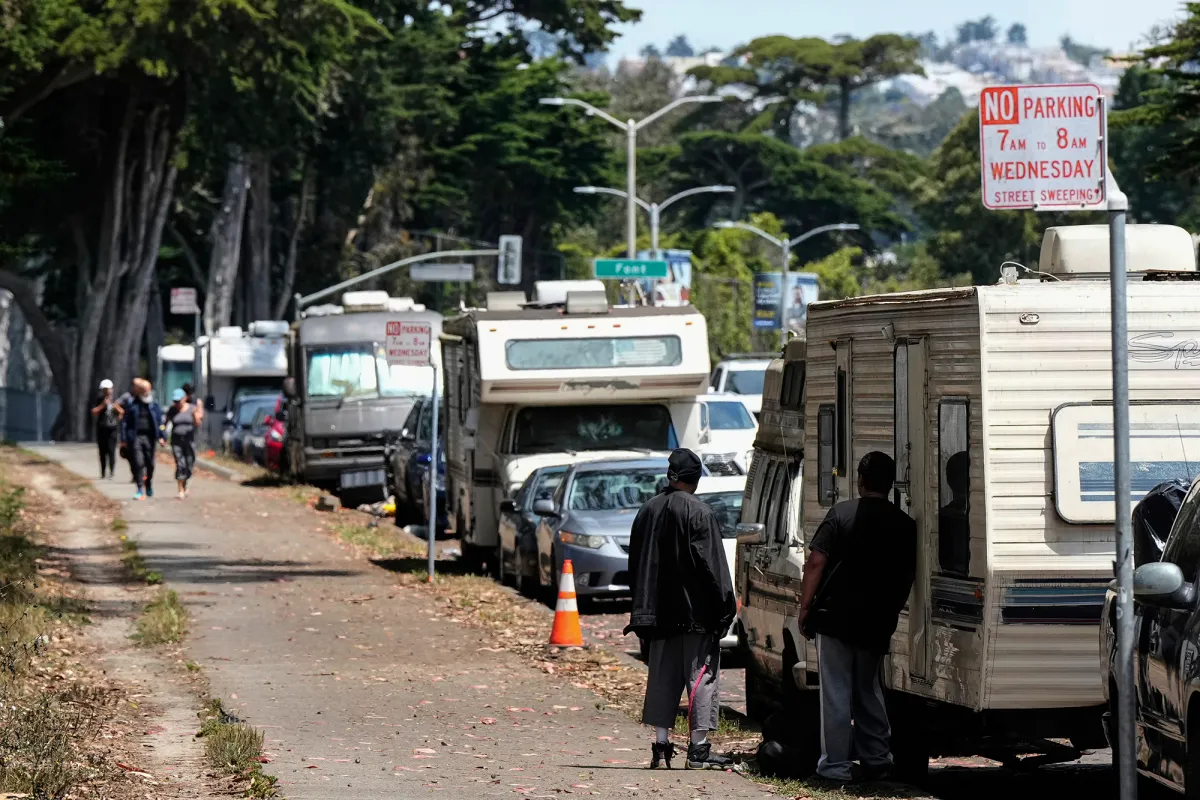California lawmakers just made it easier for cities to seize and destroy the only homes that thousands of unhoused residents still have. AB 630, a bill by Assemblymember Cecilia González, allows Los Angeles and Alameda Counties to “dispose of” impounded recreational vehicles appraised at under $4,000 after only 30 days. Governor Gavin Newsom signed it this week despite opposition from more than forty organizations, including the ACLU, Western Center on Law and Poverty, Housing California, and Venice Community Housing.
Opponents warned the governor that the bill “will strip vehicularly housed people of their most valuable asset, at great cost to law enforcement, local governments, and the courts.” In a letter urging a veto, they noted that in Los Angeles County, 39 percent of unhoused residents live in vehicles, often because those vehicles are the last barrier between stability and sleeping outside. Cars and RVs provide safety, a way to lock belongings, access to jobs and schools, and connection to services. Towing and scrapping them doesn’t just remove a nuisance; it takes away someone’s home, their possessions, and their ability to recover.
From the “Vanlord Ban” to anti-vehicle dwelling ordinances, LA city leaders have spent years pushing measures that let them remove people’s homes instead of helping them. These policies repeat decades of failed crackdowns that do nothing to address homelessness itself, and only hide it from view. Criminalization just shifts it from one street to another, leaving people more vulnerable and disconnected from outreach teams or service providers who could actually help.
That pattern is already visible in Los Angeles, where enforcement-heavy strategies have pushed people out of RVs and into tents or onto the street. According to RAND’s longitudinal homelessness study, LA’s official count misses roughly a third of unhoused people, especially those living without shelter or vehicles. By turning RVs into scrap metal, AB 630 will only deepen that undercount, making it harder for outreach workers to locate people and for the public to understand the true scale of the crisis.
The human cost of these policies is staggering. When the city tows an RV, the residents lose not just a roof but often every document, medication, and personal item they need to survive. For women, children, and disabled residents, who are overrepresented in vehicular homelessness, the trauma is even greater. The ACLU letter points out that the single biggest predictor of vehicular homelessness is being in a household with children. AB 630 effectively tells those families that their homes can be seized and destroyed on a bureaucratic timeline.
City leaders like those in Los Angeles have spent years framing such bills as “clean-up” measures. But there’s nothing clean about forcing people into the streets. The same money spent on towing, storage, and disposal could fund sanitation services, safe parking programs, or RV repair assistance. These solutions preserve dignity and actually work. Instead, AB 630 hands cities another tool to wage war on poverty under the guise of “public order.”

